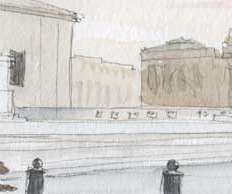UN Draft Treaty on Transnational Business Enterprises and Human Rights in the Making: Raising the Global Bar in Corporate Litigation
ClimateChange-ClimateLaw
MAY 30, 2024
Ecological restoration and environmental remediation are some responses to climate change, and thereby this Treaty is likely to impact future climate litigation. This is likely to impact the success rate of litigation claims, since the clearer an obligation is in its scope and nature, the more likely it is that non-compliance is sanctioned.














Let's personalize your content